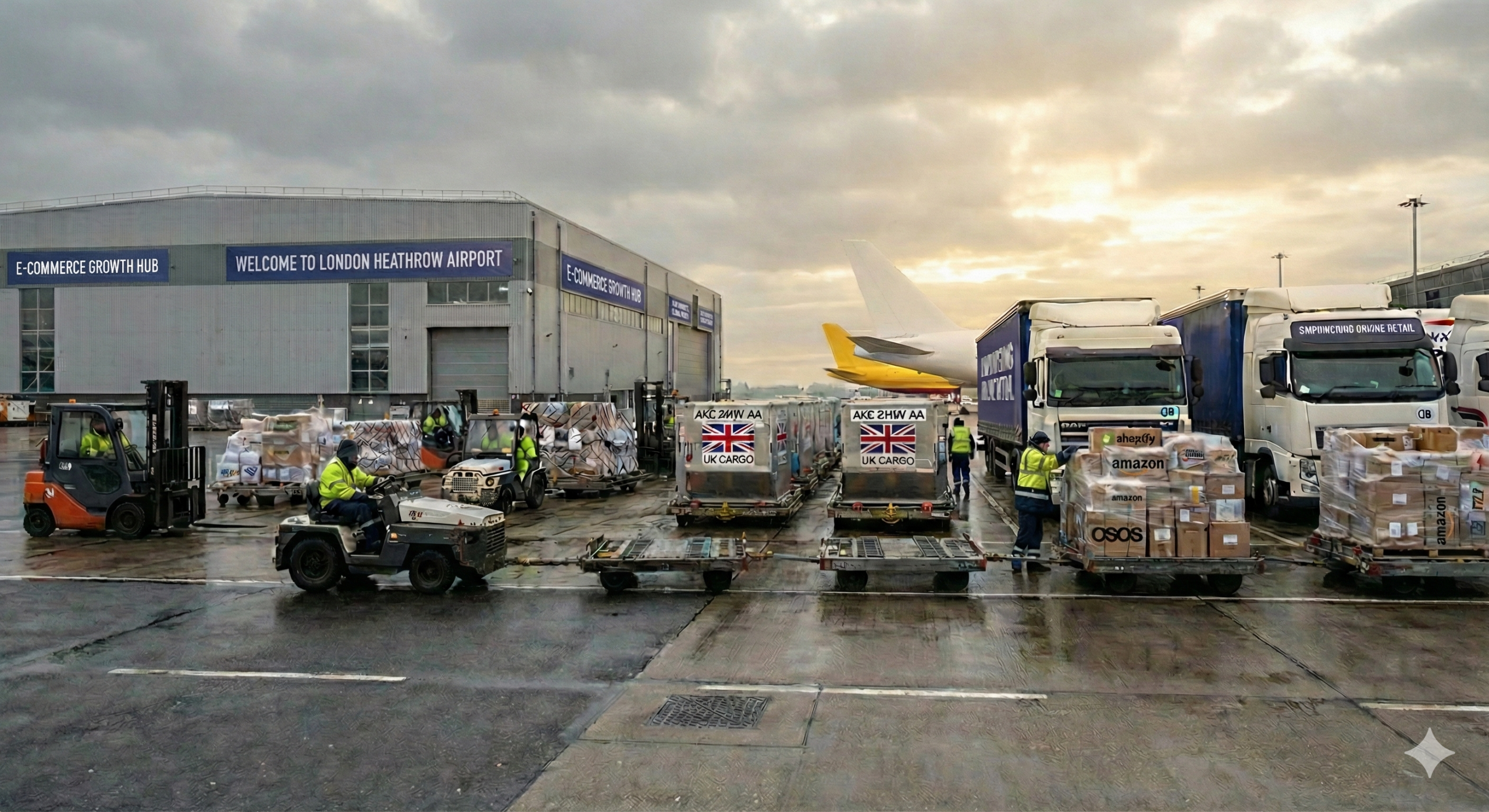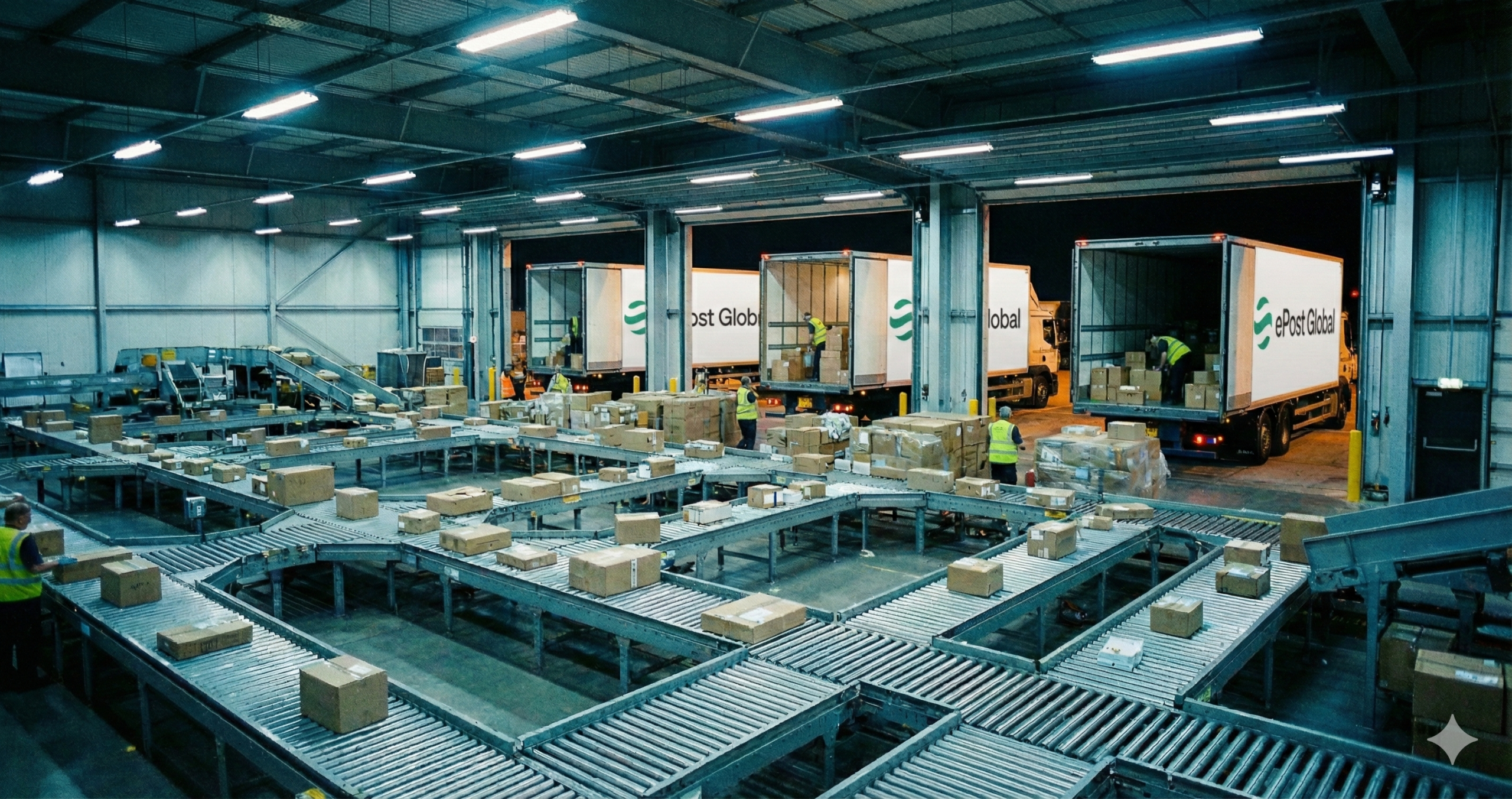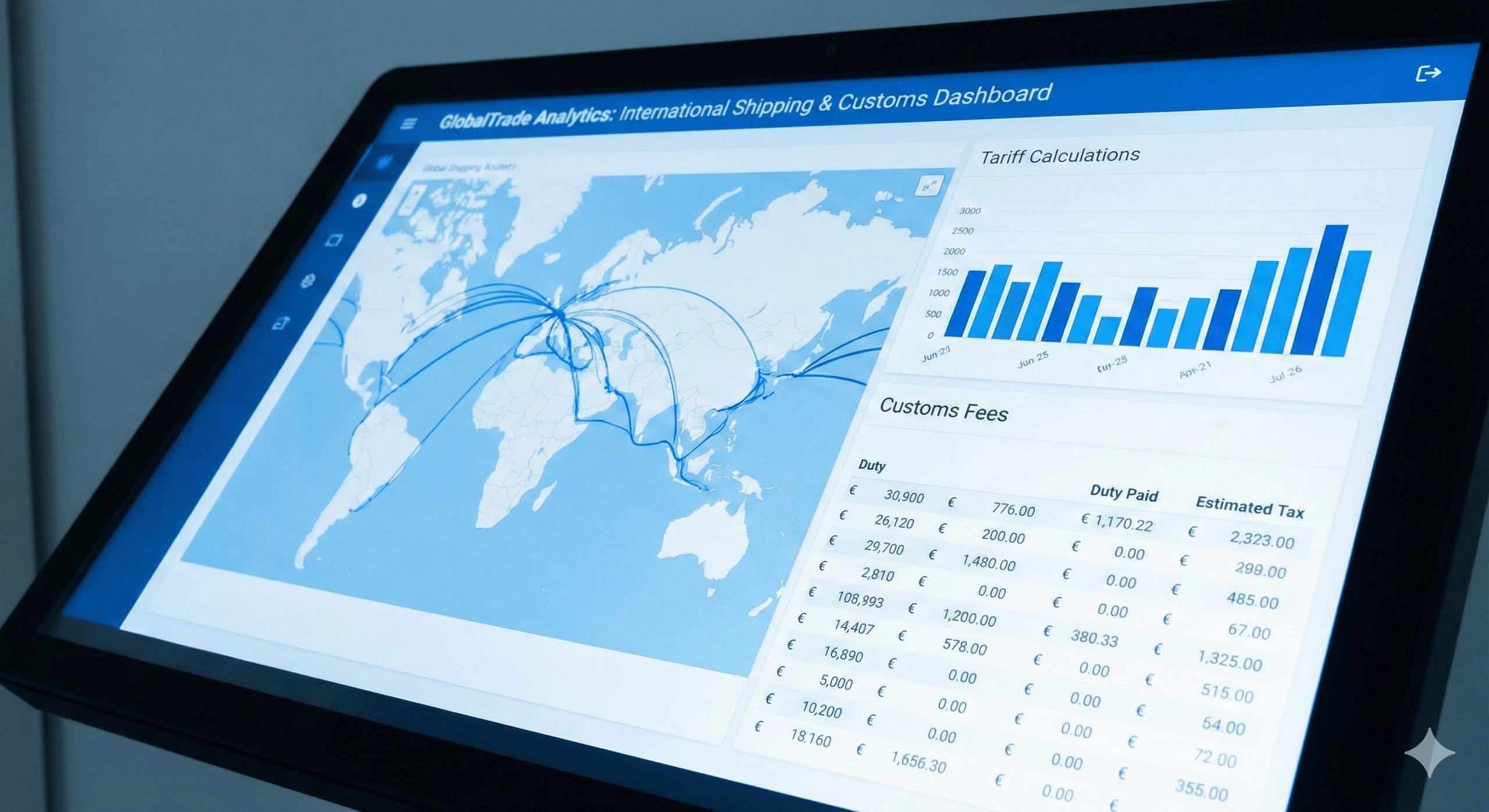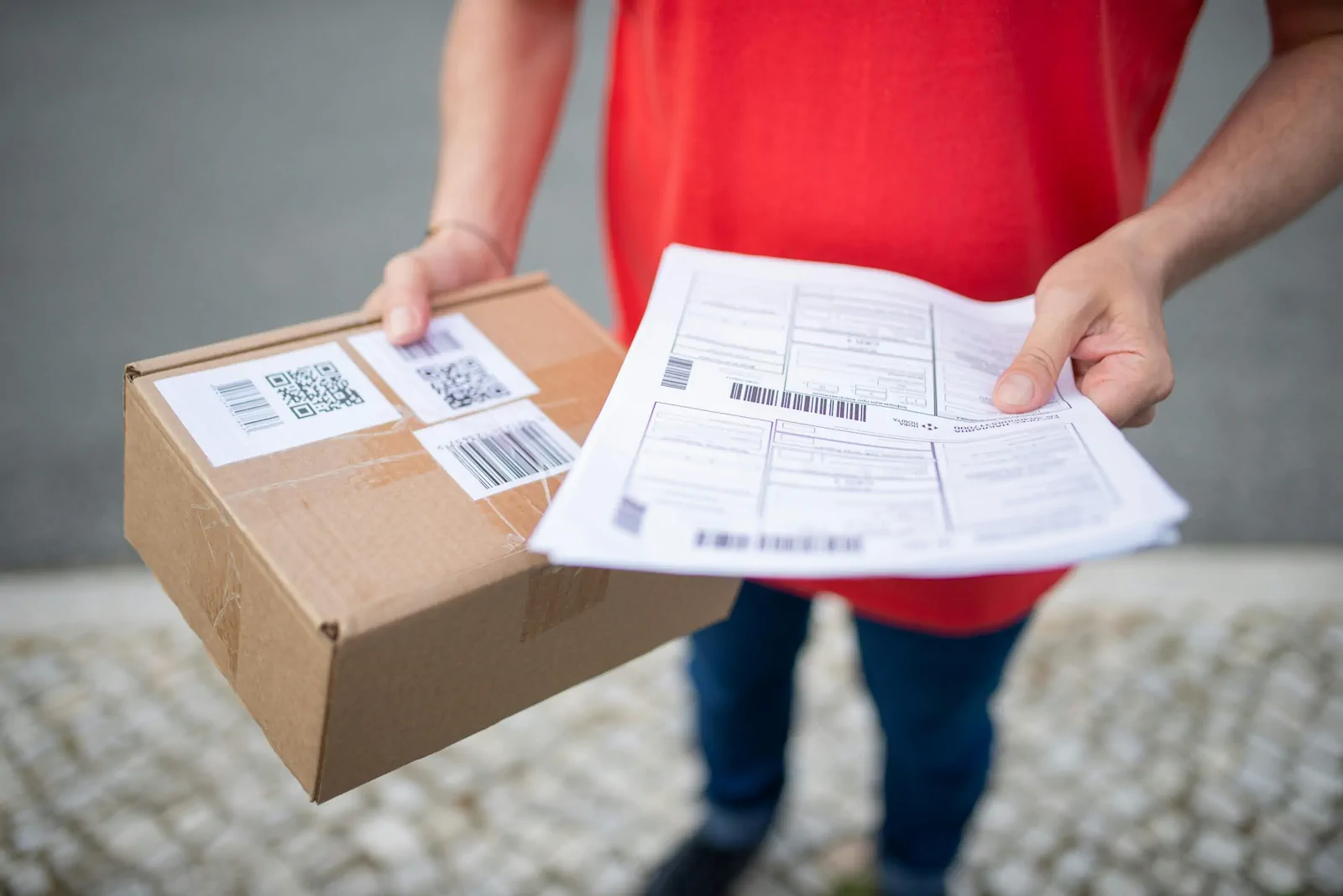As the 13th largest economy in the world in 2025, Australia offers exciting opportunities for business expansion. However, international shipping comes with its own set of rules, and understanding Australia’s specific restrictions and requirements is key to success. Failing to navigate these regulations properly can lead to costly delays, or worse, have your shipment held or turned away at customs.
In this blog, we’ll walk through the key aspects of shipping to Australia and how partnering with an international logistics company like ePost Global can streamline the process for your eCommerce business. So whether your packages are headed to Sydney, Melbourne, or Brisbane, understanding the intricacies of international delivery can help you succeed.
Considerations When Shipping to Australia
From shipping costs to customs, here are a few key things business owners should keep in mind when expanding to Australia and managing cross-border shipping from the U.S.
Product Restrictions
Australia prohibits the import of various items, including:
- Firearms,
- Illicit drugs
- Tobacco products
- Certain chemicals
Some goods may be restricted or require special permits, such as endangered species, live animals, and specific types of plants. Food products are also subject to particular regulations, including labeling requirements, testing, and inspection.
It’s important to note that restrictions can vary between Australian states and territories. For instance, a product allowed in New South Wales may be restricted in Western Australia. Researching the regulations specific to your shipment’s destination is a must.
Shipping Restrictions
In addition to product restrictions, Australia also enforces rules surrounding shipping method, item value, and quantity. Proper labeling and compliant packaging are critical, as mistakes here can derail an otherwise smooth clearance.
Some products, such as perishable goods or temperature-sensitive electronics, may require temperature control or special handling during international delivery. This makes choosing the right courier services or shipping providers critical for maintaining compliance and protecting your inventory.
To ensure your goods make it from the warehouse to the customer's doorstep, a reliable and flexible delivery service is key. While the post office and traditional carriers offer basic international service, modern expectations—largely driven by platforms like Amazon—demand more. Businesses need shipping providers who can meet fast and reliable shipping times, offer door-to-door solutions, and provide end-to-end tracking.
Key Shipping Documents for Australian Customs
Proper documentation is a cornerstone of compliant international shipping. Missing or incomplete paperwork can delay customs clearance or even result in seizure.
Key documents include:
Commercial Invoice & HS Code – The invoice breaks down what’s being shipped, its origin, and its value, while the Harmonized System (HS) Code provides a standardized classification that customs officials use to apply duties and verify compliance.
Packing Slip – Includes essential information such as sender/recipient details, package weight, shipping method, and any special handling instructions.
Certificate of Origin – This document may be required to confirm where the goods were manufactured and whether they qualify for preferential trade agreements.
Customs Form – Required for all international shipments to declare the contents and value of the shipment.
Some products may require additional certificates, such as a certificate of analysis (for supplements or food), or ARTG registration (for pharmaceuticals). It’s important to confirm what's needed based on your product category.
Duties and Taxes
As with most countries, imported goods into Australia are subject to duties and taxes. As an eCommerce merchant, understanding these costs can help you avoid unpleasant surprises for your customers.
Types of applicable fees include:
Goods and Services Tax (GST): A 10% tax applied to most goods, including imports.
Customs Duty: Varies depending on the product category and declared value. Some products may be duty-free under certain thresholds or trade agreements.
Import Processing Charge (IPC): A fee assessed by the Australian Border Force, based on the shipment’s value and mode of transport.
To provide your customers with a transparent checkout experience, it can be helpful to be upfront about the cost of shipping, including any applicable duties and taxes. Customers are more likely to abandon their cart if they’re hit with surprise fees later. Using a shipping calculator can help provide accurate estimates—just remember, it’s only an estimate.
Importer of Record
The importer of record is the person or business responsible for making sure a shipment complies with local laws and regulations. While Australia does not have a general requirement for importers to hold an import license, certain goods may require permits, and in many cases, particularly with higher-value or commercial shipments, the importer of record must be based in Australia.
For U.S.-based eCommerce retailers, this often means appointing a local representative to act on your behalf. This role typically involves handling documentation, clearing goods through customs, and managing any applicable taxes and duties.
Partnering with a logistics provider that can support or coordinate with an importer of record simplifies the process, reduces the risk of delays, and gives business owners greater peace of mind when shipping internationally. It’s one more way to keep your cross-border shipments moving smoothly.
ePost Global: Your Partner in Smooth Cross-Border Shipping to Australia
At ePost Global, we specialize in helping U.S.-based eCommerce businesses successfully expand into markets like Australia. From ensuring compliant shipping documentation to optimizing delivery times and providing end-to-end visibility, our services are built for today’s global retailers.
Customs Management
Our experienced customs team ensures every shipment includes proper documentation, accurate HS codes, and a fully compliant customs form. We handle customs submissions and create all necessary labels, so you don’t have to.
Using our API or integrated third-party systems, you can submit manifests and print compliant shipping labels in just a few clicks. We take care of the heavy lifting so you can focus on growing your business.
Customized Services
We offer flexible shipping solutions, including economy, standard, and express shipping options, so you can select the service that best fits your business model and customer expectations. Whether you're shipping high volumes or smaller parcels, we help you strike the right balance between cost-effective rates and reliable delivery.
We also offer tracking number integration and full door-to-door service, so your customers can track their shipments and receive them when expected—no matter where they are in Australia.
Enhanced Customer Experience
Meeting customer expectations in cross-border shipping is more important than ever. Shoppers expect fast, predictable service with clear expectations around transit time. That means offering multiple shipping options, full shipment visibility, and transparency around the total cost of shipping.
Key features of our customer-first approach include:
- Accurate delivery estimates
- Multiple delivery methods
- Near real-time tracking
- Transparent shipping rate breakdowns
When your international delivery experience is on par with local standards, you win customer loyalty and repeat business.
Partner With Experts Who Know Cross-Border Logistics
Shipping to Australia is filled with opportunity, but can also come with complexity. From navigating regulations to calculating the true cost of shipping, getting it right requires expertise, precision, and the right logistics partner.
That’s where ePost Global comes in. We help eCommerce retailers like you manage every step of the shipping process, from packaging and documentation to final-mile delivery. And unlike traditional carriers like USPS, FedEx, and DHL, our services are designed to be flexible, data-driven, and truly cost-effective for cross-border growth.
Ready to simplify your international service and deliver a world-class customer experience? Contact us today and discover how ePost Global can help you confidently ship to Australia and beyond.
FAQ: Common Questions About Shipping to Australia
What’s the cheapest shipping method from the USA to Australia?
This depends on the size, weight, and urgency of your package. Economy shipping may be the most cost-effective, but it could come with longer shipping times. ePost Global helps businesses balance cost and reliability with multiple options tailored to your needs.
Can I ship food or supplements to Australia?
Yes, but you’ll likely need permits, certifications, and accurate labeling. Some products may also require testing. It’s important to check specific requirements for your product type.
Do I need an importer of record?
Although it’s not officially required, having an Australian-based importer of record can help you comply with local customs laws.
What’s the role of Australia Post in the process?
Australia Post often handles final-mile delivery for shipments entering the country. However, businesses seeking greater control and flexibility may prefer to work with international shipping providers.
How do I know if my shipment meets all the documentation requirements?
Our team at ePost Global will walk you through everything—from the commercial invoice to HS codes and any additional permits—ensuring your shipments move smoothly through customs.




